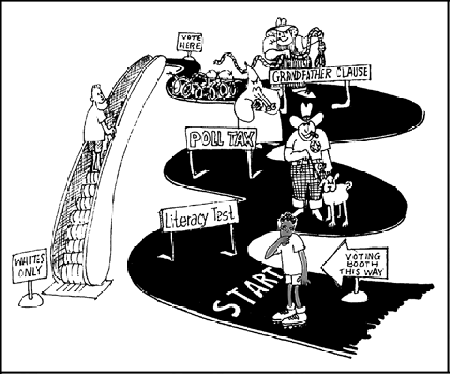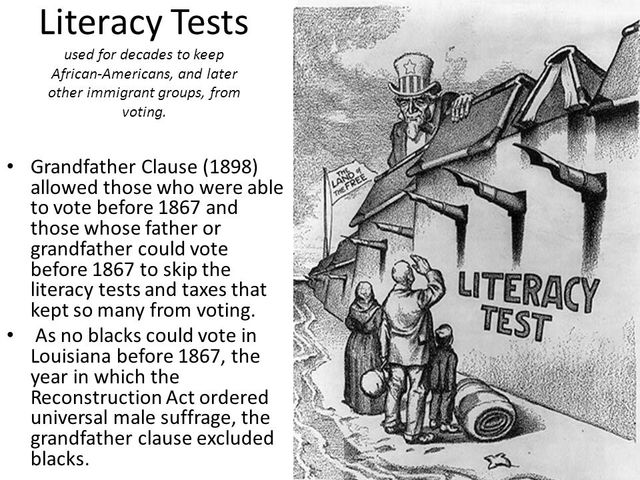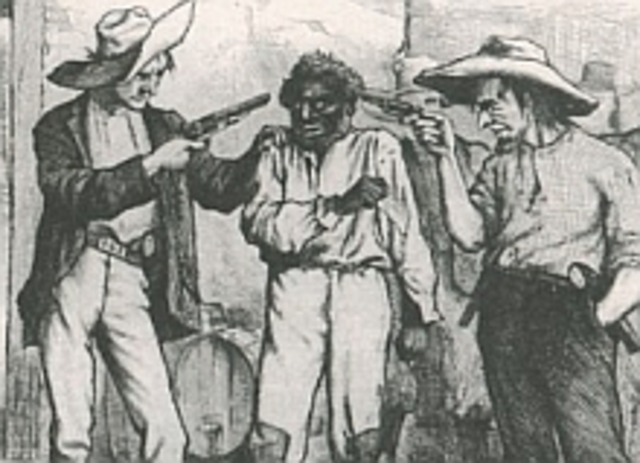
The drafters of the amendment were aware of the politically unacceptable fact that illiterate whites could also be excluded by the literacy test. The large number of poor illiterate black males, as well as the bias of white Democratic registrars, ensured that the literacy test and the poll tax would be used to reduce the electorate. Far from attempting to encourage literacy, however, the primary goal of the amendment, as admitted in the Democratic Party's pro-amendment campaign in 1900, was to eliminate African American voters as a factor in North Carolina politics.

The disfranchisement amendment provided that voters must be able to read and write a section of the state constitution in the English language and to pay a poll tax.

The organization received some criticism for its strategy of working through the judicial system and lawmakers to achieve its goals, rather than focusing on more direct methods of protest favored by other national civil rights groups.The Grandfather Clause was an important component of the 1900 constitutional amendment restricting North Carolina's class of eligible voters. history, and had a hand in running 1964’s Mississippi Freedom Summer, an initiative to register Black Mississippians to vote.ĭuring this era, the NAACP also successfully lobbied for the passage of landmark legislation including the Civil Rights Act of 1964, prohibiting discrimination based on race, color, religion, sex or national origin, and the Voting Rights Act of 1965, barring racial discrimination in voting. The NAACP also helped organize the 1963 March on Washington, one of the biggest civil rights rallies in U.S. In 1967, he became the first African American to serve as a Supreme Court justice. Marshall, who founded the LDF in 1940, won a number of other important civil rights cases involving issues such as voting rights and discriminatory housing practices. Pioneering civil-rights attorney Thurgood Marshall, the head of the NAACP Legal Defense and Educational Fund (LDF), successfully argued the case before the court. This “grandfather clause” enabled illiterate whites to avoid taking the reading test while discriminating against illiterate Black people, whose ancestors weren’t guaranteed the right to vote in 1866, by requiring them to pass a test in order to vote. In 1910, Oklahoma passed a constitutional amendment allowing people whose grandfathers had been eligible to vote in 1866 to register without passing a literacy test.

Since its inception, the NAACP has worked to achieve its goals through the judicial system, lobbying and peaceful protests. In 1910, Du Bois started The Crisis, which became the leading publication for Black writers it remains in print today. Du Bois, the only Black person on the initial leadership team, served as director of publications and research. In its charter, the NAACP promised to champion equal rights and eliminate racial prejudice, and to “advance the interest of colored citizens” in regard to voting rights, legal justice and educational and employment opportunities.Ī white lawyer, Moorfield Storey, became the NAACP’s first president. Some early members of the organization, which included suffragists, social workers, journalists, labor reformers, intellectuals and others, had been involved in the Niagara Movement, a civil rights group started in 1905 and led by Du Bois, a sociologist and writer.


 0 kommentar(er)
0 kommentar(er)
